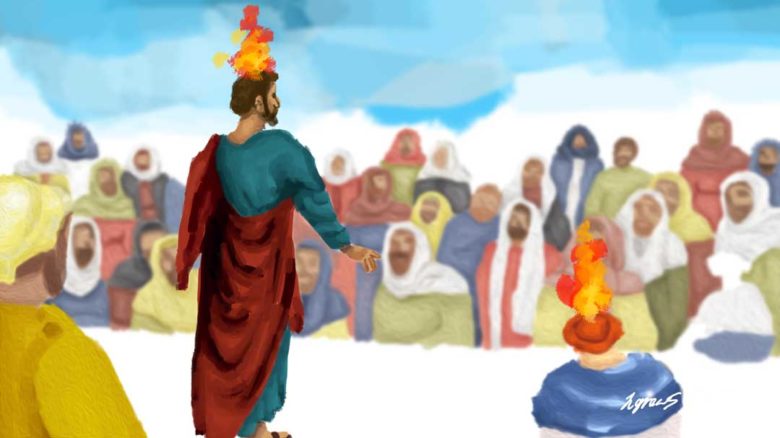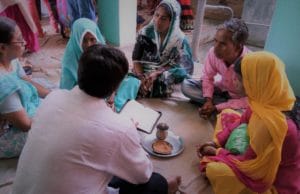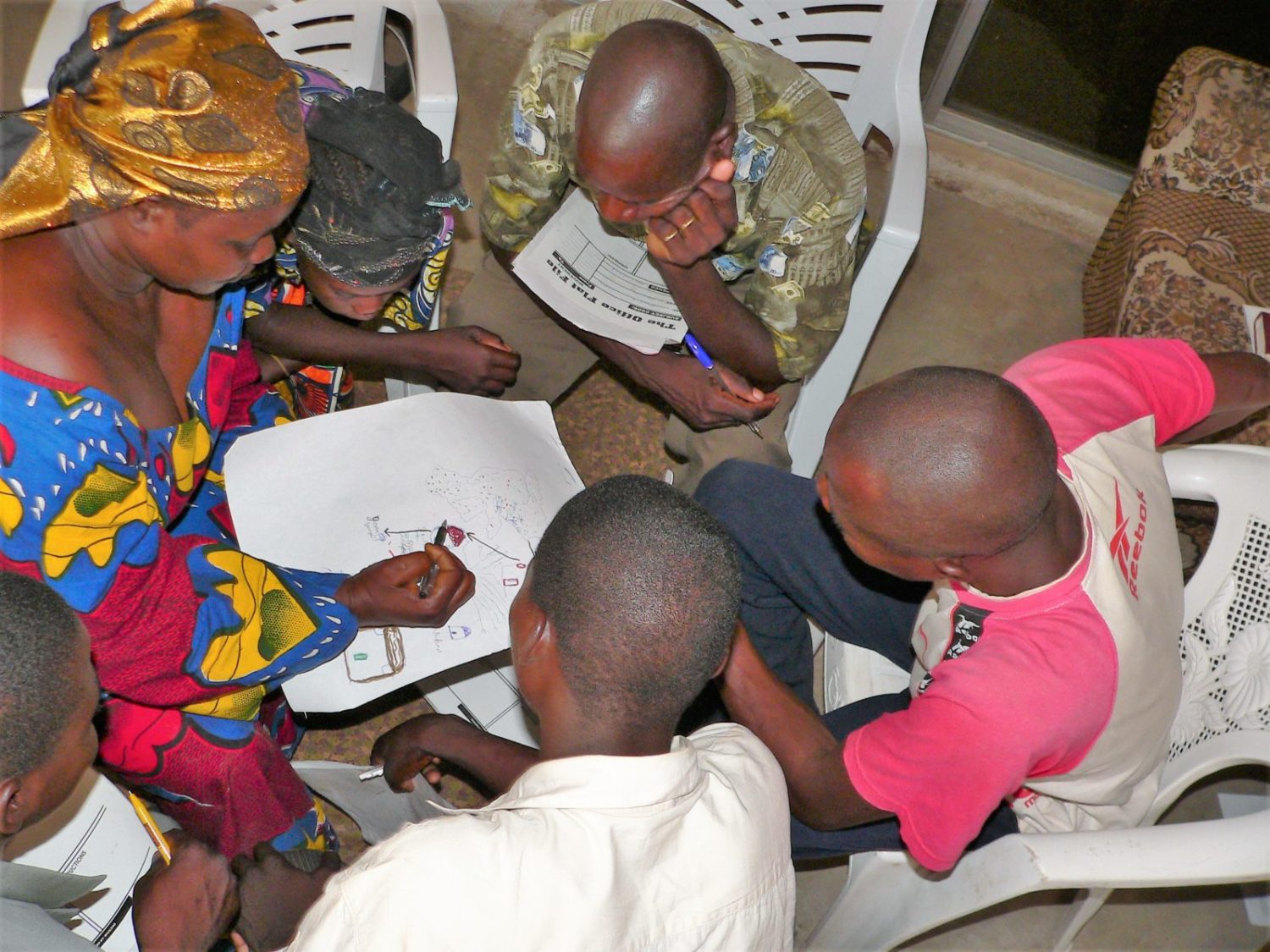In previous posts, we looked at the characteristics of Jesus’ movement. We also looked at the movement the apostles continued in Jerusalem. As the movement developed, we see what local assemblies (house churches) looked like. This adds to our understanding of New Testament movements. As we study the scripture below, we can examine our existing views of the church. Let us try to see the passage from the perspective of the early disciples, instead of our own.
What did the disciples in Jerusalem regularly do?
A summary of what the disciples regularly did in their local context, Jerusalem, is found in Acts 2:41-47.
41 So those who received his (Peter’s) word were baptized, and there were added that day about three thousand souls. 42 And they devoted themselves to the apostles’ teaching and the fellowship, to the breaking of bread and the prayers. 43 And awe came upon every soul, and many wonders and signs were being done through the apostles. 44 And all who believed were together and had all things in common. 45 And they were selling their possessions and belongings and distributing the proceeds to all, as any had need. 46 And day by day, attending the temple together and breaking bread in their homes, they received their food with glad and generous hearts, 47 praising God and having favor with all the people. And the Lord added to their number day by day those who were being saved. (ESV)
Acts 2:41-47
When we examine this passage, we may want to ask important questions such as 1) what can we learn from the Jerusalem movement and 2) how can we adjust what we do to be more like them?
We find seven activities the disciples in Jerusalem did regularly. Many were done daily.
1. All who believed were baptized (2:41).
A simple interpretation of this passage is that those who received Peter’s word (about Jesus) were baptised that day. This follows Peter’s instruction in 2:38. After this, the three thousand were counted as part of their number.
Is baptizing every believer our desired intention, or practice? How about baptizing believers early, even the same day? What stops us from following the example of the apostles? Or from obeying this part of the Great Commission? We will look at other examples of baptism in future articles.
2. They were devoted to the teaching of the apostles. (2:42)
Every day the disciples in Jerusalem devoted themselves to the apostle’s teaching. The apostles followed the pattern of Jesus and taught about the Kingdom of God. They did this in the part of the Gentile court called Solomon’s Colonnade (3:11; 5:12). This was one of the public places where Jesus taught the people (Jn 10:22-30).
What about today? How devoted are the disciples in our locations to following what Jesus practiced? What is the most important foundational teaching we promote among disciples? Is it the Kingdom of God?
3. They were devoted to the fellowship (2:42, 44, 45).
They were devoted to “the fellowship” (2:42). This means the believers were “together” (2:44) spiritually and emotionally. They lived as a community of believers. “They had all things in common” meant that those who were “in need” were helped by those who had plenty (2:45).
Today, are we more interested in “making groups” and churches? Or in creating communities of believers where New Testament fellowship is a reality?
4. They were devoted to the breaking of bread at home (2:42, 46).
The disciples were devoted to “the breaking of bread” (2:42). They broke bread in their private homes every day. They did it during their meal times, with glad and generous hearts (v.46). Breaking bread took a central daily part in reminding them what Jesus did on the cross (Lk 22:17-20). One important application of breaking bread was believers forgiving one another as God in Christ had forgiven them.
When disciples come together in our locations, is breaking bread an important part of the fellowship? Or is it an optional extra that we practice on rare occasions?
The private homes of disciples were important gathering places for believers. They also met in the temple courts. After the destruction of the Jerusalem Temple in AD 70, it left only the private homes as the primary place for believers in Jerusalem to gather.
We want to start movements that have the characteristics of those in the New Testament. Are we putting most of our resources into planting “churches” with special buildings or in making disciples who follow Jesus?
5. They were devoted to prayer and to praising God (2:42, 47).
The early disciples were devoted to “the prayers” (2:42). This likely referred to the Jewish hours of prayer that happened in the Temple, as well as private prayers at home (10:9). The disciples were not only praying but also “praising God” for all He was doing among them (2:47).
We also read of a dedicated prayer meeting at the house of Mary. She was the mother of John Mark. The disciples were praying for Peter’s release from prison (12:11-14).
How’s the prayer life of the believers in our locations? If it’s lacking, what can be done to improve all believers’ prayer lives, including our own?
6. Many wonders and signs were done (2:43)
Many wonders and signs continued to be done by the apostles (2:43). These played an important role in advancing the Gospel. After the signs at Pentecost, about three thousand were added. Following the healing of the lame man at the gate Beautiful, the next recorded number was about five thousand men (4:4).
Do we believe that wonders and signs can play an important role in opening up the hearts of unbelievers? Are we only relying on good “evangelistic tools”?
Do we have theological barriers to seeing wonders and signs today? Are we praying in faith that God will continue to give signs where we proclaim the gospel among lost people?
7. Every day, people were added to their number (2:47)
One result of all these activities was that every day new believers were added to their number. This was the Lord working, not just the disciples (2:47).
In our efforts to start movements, are we relying on our strength? Or are we seeing this as the Lord’s work and ourselves as simply labourers in His field?
How Does Your Disciple Making Effort Compare?
Reading the article above, what similarities do you see with how you are making disciples? Are there differences?
The Bible was given to instruct and guide us. We must apply these principles and activities to our context today. In many areas we have drifted far away from the New Testament model.
This has contributed to slowing the growth of the Kingdom.
If we want to see a radical multiplication of obedient disciples who make disciples, we must be willing to change. Our model needs to be much more aligned to the model Jesus and the apostles gave.
What changes will you pray about making as a result of reading the above? We’d love to read your comments below or on the DMMs Frontier Missions Facebook Group.




Comments
Wow! Insightful and revealing.
I must honestly confess that reading this article has ignited something in me I am not sure what it is, except to say I sense a certain mixed bag of urgency and excitement.
The systematic presentation locked with a certain oil of joy and drive has QUICKEN my appetite for witness in a way I can only tell as I believe I proceed with my DMM “enterprise”
Most very grateful for this insightful tutorials.
I pray to see daily prayers and breaking of bread in my home to start with. and encourage other families in our ministry to come together in clusters to pray and break bread daily. It is a daunting challenge since many do not come when we have our once a week prayers. Hopefully doing it at home close to one another may help. To see signs and wonders at all our gatherings. That God increase our faith and devotion to Him to set aside time daily for Kingdom activities like studying the Word together, feĺlowshiping and all the things the NT church was engaged in.
Help us Lord!
My eyes has been opened alot to be done
Am excited to have read this article because it has indeed inspired me more and more. It touched my heart and I have a longing to make disciples more of what the disciples in Jerusalem did, there is so much lacking in our discipling today, such that l tend to believe that we should follow exactly what was happening in Jerusalem, by showing True love to our disciples, and breaking of bread every day of our meetings, by sharing what we have with the ones that lack, am sure that more of the lost and even non-Christians will long to join without even talking to them, because they will be seeing the Christ in us, and living by example, shall surely attract thousands to Christ! God help us!
I am waiting to discover more about this program..
Are there particular questions we can answer? Feel free to write to us at admin@dmmsfrontiermissions.com
I am greatly inspired. I see here that if we do our part God is faithful to extend his kingdom through our little efforts. If we devote ourselves to the things that the disciples of old devoted themselves to we will see what they saw and we will keep experiencing him.
Amen! Many blessings.
I am totally convince with the article since our faith come from what we hear was done ,this is going through on our mind set and left us to believe with what we here preach that bring transformation through our life of salvation.as we know Good news of Jesus Christ cause the life of other people to perish,Now we receive him because of his effort to win our heart thank you so much Cindy for this articles .